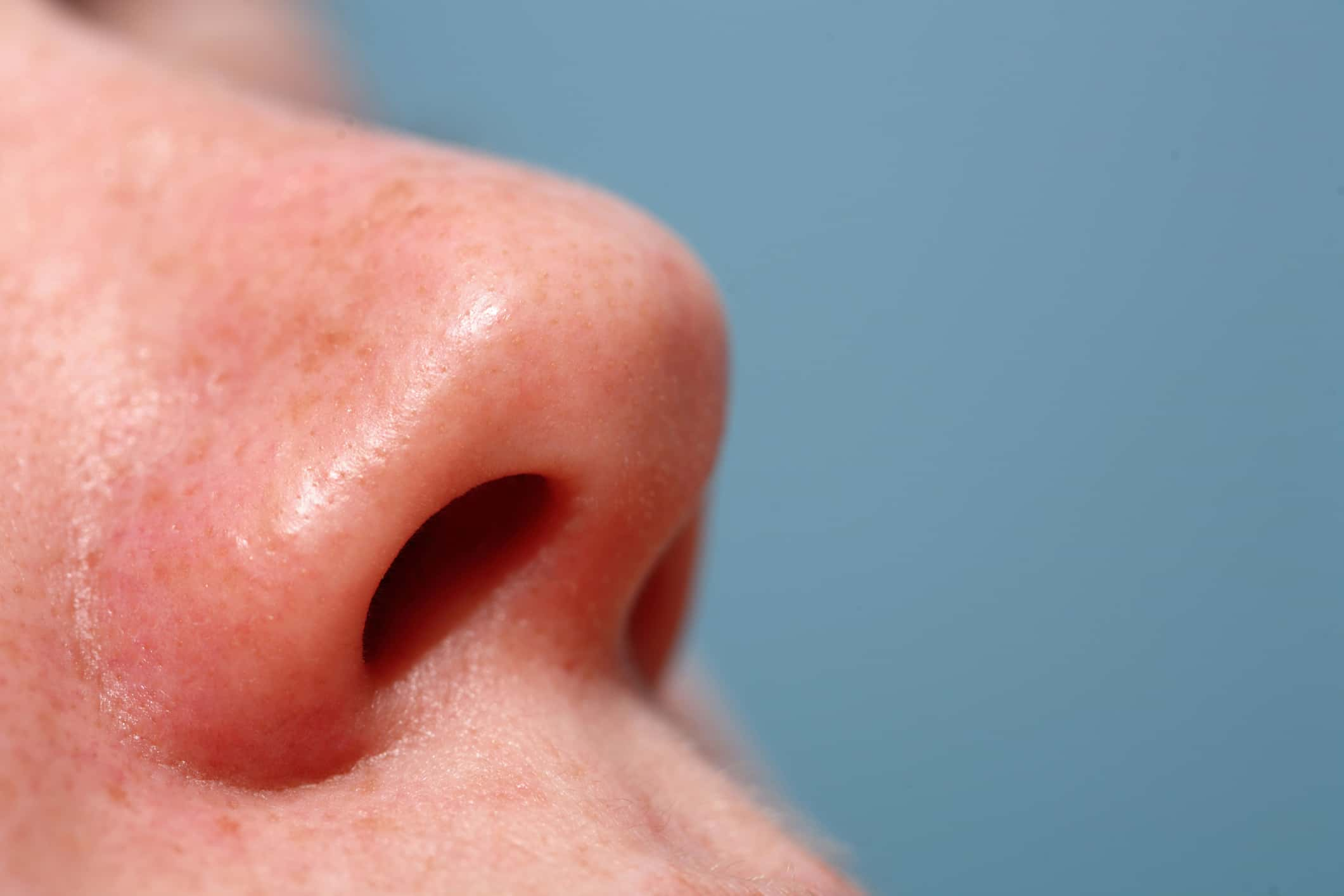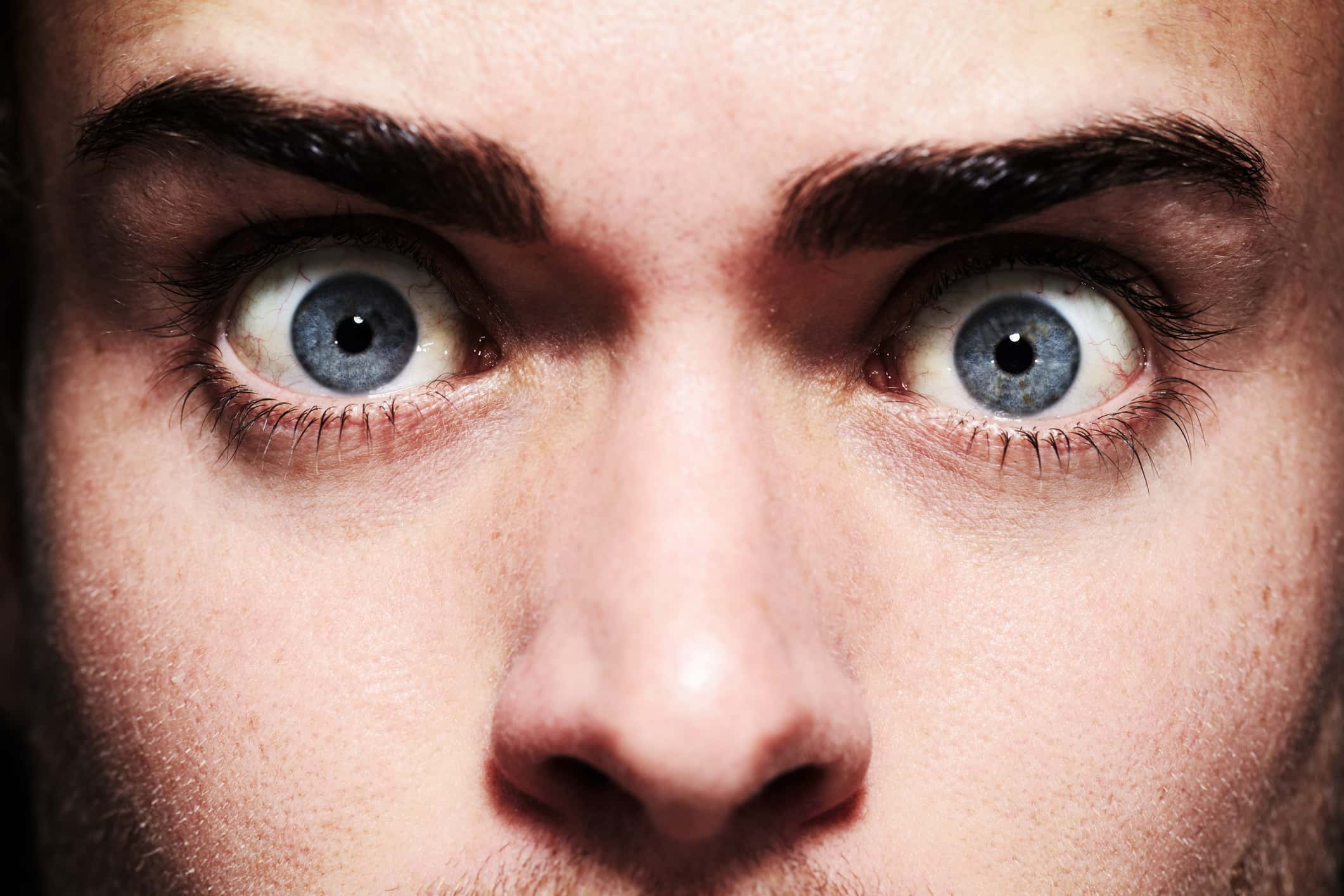Believe it or not, not all psychopaths are violent or murderous. In fact, someone you know and love could technically be a psychopath. If all you watch are crime dramas (not that there’s anything wrong with that), you might be used to seeing the type of psychopath murderer that is frequently shown on screen, but in real life, what’s potentially even more interesting is the shades of gray in between. Some people can have psychopathic tendencies without being one, and others can be full-blown psychopaths but put their tendencies to good use.
Every human on this planet shares some psychopathic traits, to varying degrees. However, some are more callous and others are just darn good at hiding it. Curious to know how you rate? There’s a standardized test that you can take (#32 and #31 will tell you more about it). Think all psychopaths go to jail? Breaking news: you may have already met one today (#15 will tell you how likely you are to have already come across one on your path, today).
Psychopaths are a fascinating, sometimes scary kind of human being. They are not all pupils of Hannibal Lector, but, like with all things, it's still worth knowing more about them. Read on to learn 41 startling facts about the psychology of psychopaths.
Psychology Of Psychopaths Facts
41. It’s All in Their Heads
Psychopaths are able to experience a range of human emotions. However, they do not experience them in the same way that you or I do. The part of the brain that controls the fear response is called the amygdala, and the outer layer it is much thinner than normal in the brain of a psychopath.
40. What Kind of Face are you Making?
Because they find it challenging to experience and show fear themselves, psychopaths have difficulty responding to horror as displayed from non-psychopathic human beings. When a psychologist was studying a murderer with psychopathic tendencies, the woman said, in response to being shown a picture of a person with a frightened impression: “I don’t know what that expression is called, but I know it’s what people look like right before I stab them.”
39. Rainbow of Grays
Being a psychopath isn’t as simple as black or white, or nature versus nurture. Research suggests it’s a condition that has many grays—a person can have psychotic tendencies that range from moderate to severe. Some may even have a few of the characteristics, but not be among the murderous, villainous psychopaths.
38. Too Much of a Good Thing
A psychopath’s brain overproduces and overvalues dopamine—the neurotransmitter that activates the reward centers in our brains. So why do psychopaths get their kicks from manipulating others? Their dopamine receptors go into overdrive, giving them reason and greatly increasing their desire to get their own way.
37. Eyes on the Prize
Since psychopaths are so reward-driven, they tend to apply themselves 100%. They focus on the positive outcome rather than the negative, which causes them to push and push because the positive is all they see. Alternatively, this could land them in some very hot water should things not go according to plan.
36. Flip a Switch
A 2012 study showed that, contrary to the popular belief that psychopaths have no empathy, they do in fact have a “switch.” They are able to feel someone’s pain, and can come across as friendly and kind. However, they have the ability to use it when they please—generally leaving it off, and only turning it on when it serves them.
35. Past the Point of No Return?
There is more research to be done regarding this “empathy switch” however scientists are hopeful that this might mean psychopathic criminals could be rehabilitated. However, if not, if a psychopath can just simply choose to flip on or off, then the repercussions could be more severe than initially thought.
34. Time for a Time Out
Psychopaths have trouble processing rewards and punishments like normal people do—their decision-making skills therefore become questionable. When consequences shift from rewarding to punishing, they are unable to adjust their behavior accordingly, and are unable to differentiate a positive becoming a negative.
33. Top of the Chain
In a 2013 study conducted by Oxford researcher Kevin Dutton, there are jobs that attract psychopaths. Lots of them come to fill in the positions of police officers, lawyers and surgeons. The most notable career choice for a psychopath? CEO.

History's most fascinating stories and darkest secrets, delivered to your inbox daily.
32. Take the Test
The Hare Psychopathy Checklist is a standard screening test, broken down into 20 criteria to help filter out the non-psychos from the psychos, based on a point system. The score is ranked from zero to 40, which indicates the maximum amount of psychopathy.
31. American Psychos
The Hare Psychopathy Checklist was created in the 1970s, and is done as a partially structured interview format. In the United States, if a patient gets 30 points or above, he is deemed a psycho. In the UK, it’s a little stricter – 25 points or above gets you the psycho label.
30. High Paid Psychopaths
In a 2010 study, 203 promising executives currently enrolled in management training programs were subjected to Hare’s psychopathy checklist. The results? 1 in 25 of the execs were deemed as full-blown psychopaths. That means that, among executives, there are 4 times more psychopaths than in the general population.
29. Life With no Emotions
“Broad affect” is when someone gestures while talking, has dramatic facial expressions as a result of a social situation—laughing at a funny joke or jumping and squealing when given a nice gift. The opposite of this is the “shallow affect” or “blunted affect”—the absence of any exhibition of emotion. Psychical indicators of this include a flat voice and no expression on the face.
28. As Deep as a Puddle
One of the questions in the Hare psychopathy checklist asks, “Do you have ‘shallow affect’?” This refers to the psychopathic emotion of having very shallow emotions, meaning that psychopaths do in fact feel emotions, but they are short-lived, weaker, and fleeting.
27. Psychopath For a Day
Want to try being a psychopath on for size? Using Transcranial Magnetic Stimulation (the process of applying a powerful magnet that’s similar to undergoing an MRI), parts of the brain including the amygdala (“the brain’s morality neighborhood”) where empathy and fear reside can temporarily be turned down, resulting in a “psychopath makeover”.
26. What Does Being a Psychopath Feel Like?
Oxford researcher Kevin Dutton underwent the treatment to see how it felt. The result? He says, “It’s like you’ve had a six pack of beer, but you don't feel the tiredness and the sluggishness that go with it. Your inhibitions are gone, but you’re very very alert – A lot of us drive around with a foot hovering over the brake pedal too much. Psychopaths drive around without any thought of the brake pedal at all, with the foot flooring the gas. It was a beautiful feeling, I must say. It was really really good.”
25. It Was a Bad Year
The same Oxford researcher ranked US president Donald Trump as “above Adolf Hitler” using a standard scale to measure the potential for psychopathy in adults—but also, Hilary Clinton wasn’t far behind.
24. C.E.Psych-O
Within the normal population, psychopaths occupy 1% (though that figure is debated). However, according to some studies, between 3% and 21% of CEOs are most likely psychopaths—and it’s not all a bad thing. Some of the key features in a psychopath like fearlessness, dominant behavior and immunity to stress are helpful in maintaining a successful company.
23. Black Mirror Style
With this knowledge of being able to shut down parts of the brain to become more “psycho”, the British government is looking into ways of creating a “psychopath helmet” presumably to outfit an army and have them all disconnected and ready to kill without feeling.
22. Check Check Check Check Check Check….
If we’re using the Hare Checklist, James Bond, the 007 agent everyone loves, scores high on traits that make a psychopath. Superficially charming? Check. Zero anxiety? Check check. Sexually promiscuous? Check check check. Need for stimulation? The list goes on.
21. Virtual Psychopathy
There is a correlation between the amount of time spent on the Internet trolling and the characteristics of the Dark Tetrad—a combination of narcissism, sadism, Machiavellianism, and psychopathy. In short, Internet trolls tend to hit 3 out of the 4, derive pleasure from the suffering of other Internet users, and they will do whatever they can to elicit a response.
20. Smell Ya Never
A psychopath’s brain is made up differently, their orbital cortices functioning at a lower level. Not only does this affect their decision-making skills and ability to control their impulses, it affects their sense of smell. The higher the score on the standard psychopath test, the lower their ability to identify different smells.
 Getty Images
Getty Images
19. The Bottom Line
Although no American president perfectly fits the bill of a psycho, there is one prominent trait that many of the presidents share with a psycho. It’s called the Fearless Dominance (FD) trait, and it refers to the lack of fear and inability to back down from a dangerous situation. Offshoots of this trait includes charisma—a crucial trait for any politician.
18. Something in the Water
Teddy Roosevelt was the president who had the highest score of the Fearless Dominance trait, followed by John F. Kennedy and Franklin D. Roosevelt. Prime Minister Winston Churchill was up there too.
17. Yin and Yang
Emory University researcher Scot Lilienfeld describes the relationship between heroes and psychopaths as “twigs off the same branch.”
16. Can’t Have One Without the Other
Psychopaths and heroes are two side of the same coin, probably because their personality traits overlap—they both have the tendency to challenge authority, act on impulse, argue and break rules.
15. Probably Your Boss
The number of psychopaths in the general population are around 1 in 100. This means that if you are commuting on the subway to work, you are definitely in the presence of a psycho. And in certain careers? The number quadruples for middle-management and above.
14. Nothing to Lose
Since psychopaths aren’t really fully involved in the heavy emotions that come with killing someone, governments admire this small percentage of people for their natural killing abilities. They are perfect for the military, as they are natural killers who feel little remorse for killing someone.
13. Total Power Struggle
In a romantic relationship with a psychopath, the bond will not be love as the glue that holds it together. A psycho will always want to establish a dominance bond—maintaining their superiority in the partnership at whatever cost.
12. Same but Different
There is little difference between the term psychopath and sociopath, both however, are under the umbrella of anti-social personality disorder. Psychopathy is a more common, modern term whereas sociopathy is a 1930s term originally created to emphasize the social transgressions symptomatic of the disorder.
11. Strange but True
Although it is still unclear as to why, most psychopaths are men. Overwhelmingly.
10. This Could be the Highest Form of Psychopathic Manipulation
In the few studies that have been conducted with the very few female psychopaths available, it’s known that they are just as dangerous as their male psychos. However, it’s possible there are less females with psychopathy because their behavior is being misdiagnosed and mistaken as other mental illnesses.
9. No Rest for the Wicked
Yawns are contagious but not for a psychopath. According to a 2015 study, research shows that psychopaths are less likely to yawn even if in the presence of someone yawning or watching a video of someone yawning.
Don't get us wrong though: the question of why we yawn is still a fascinating mystery.
8. Sharing isn’t Caring
The idea of “contagious yawning” is related to empathy. It’s the same as being more susceptible to laughter when someone else is laughing, or feeling sad when someone is crying. Even dogs will yawn if their owner or someone they are emotionally bonded to yawns. Unlike a psychopath, whose empathy is stunted, this wouldn’t necessarily be the case.
7. Made in America
Western culture harbors more psychopaths than in eastern Asia, and there are a couple of hypotheses as to why. Perhaps the West rewards psychopathic behavior more (military, business, etc.) making it more likely to spread the genes. Furthermore, people with psychopathic tendencies could stick out more in the West due to less emphasis on tradition in society, and looser social classes.
6. Things to Watch Out for
Some warning signs in a young child who might have a propensity for being psychopathic include not showing signs of guilt after misbehaving or bullying, pathological lying, behavior that doesn’t change after punishment, and harm to animals, among others.
5. There are Always Signs
When trying to determine if a child will have psychopathic tendencies or become one, you can spot it early—just when a child’s personality is developing. At 2-years-old, parents will be able to pick up on it, and by 3, others will be able to tell.
4. Superficial Desires and Interests
When analyzing the conversations of imprisoned psychopaths, there were a few telling signs. These incarcerated psychopaths showed their detachment by speaking of their crimes in the past tense much more than the non-psychopaths. Typically, most prisoners divulged more about their personal relationships with families and religious beliefs, as opposed to the psychopaths, who exhibited more attachment to tangible, base needs like food, drink and money.
3. Devil in Disguise
Those who have the Dark Triad personality traits (narcissism, Machiavellianism, and psychopathy) are clinically shown to be better at making themselves appear more attractive using clothing, makeup, and hairstyles.
2. Ain’t No Angel
This can be a calculated move for a psychopath who wants to gain someone’s trust, in what is known as “the halo effect.” People naturally assume that if someone is prettier or more handsome, then they are kinder, or more wholesome. So, by grooming, psychopaths will attempt to embody these traits which they might otherwise have trouble expressing.
 Pxfuel
Pxfuel
1. Dark, Handsome, and Psycho
The jury is out—women truly are attracted to a dark and handsome man because they want to find a mate. It is these men with the brooding and dangerous look (not a dangerous way of life, necessarily) that signify to women, on a primal level, they are mentally strong, physically attractive and confident. These happen to be the exact same as the traits of the Dark Triad—Machiavellianism, narcissism, and psychopathy.
Sources: 1, 2, 3, 4, 5, 6, 7, 8, 9, 10, 11, 12, 13, 14, 15, 16, 17, 18, 19, 20, 21


















































